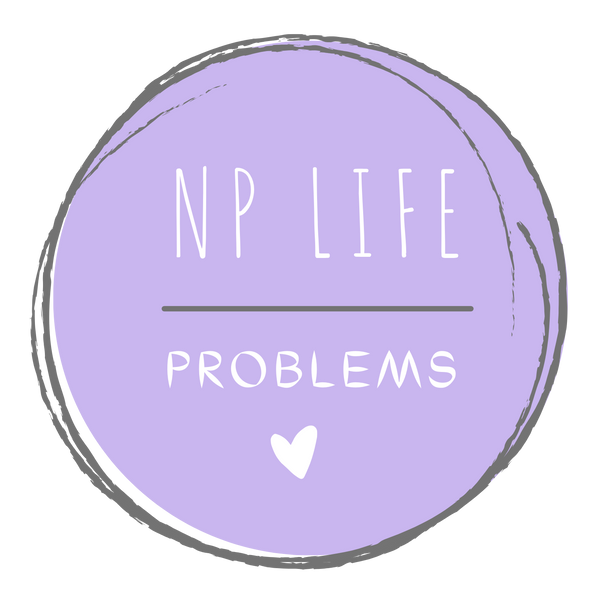Curious about what it's like to be a Urology Nurse Practitioner (NP)?
Coudé it be the specialty for you?
Urology NPs manage medical conditions that involve the upper and lower urinary tract system, which includes the kidneys, the ureters, the bladder, and the urethra. Join me as I take you through a day in the life of a Urology NP.
Morning Routine and Preparation: As a Urology NP, my day typically begins with coffee :)... Urology NPs can work inpatient or outpatient (or both in some roles) and the daily schedule varies based on this. To make sure things flow well (get it) I usually start the day familiarizing myself with the schedule, reviewing test results, and ensuring that necessary equipment and supplies are readily available for any clinic procedures. Inpatient Urology often involves rounding on the inpatients, placing morning orders for diet, lab tests, procedures, or imaging, creating the plan for the day, writing progress notes, discharging patients, communicating with interdisciplinary teams.
Patient Consultations and Examinations: Meeting with patients is a significant part of my role. Throughout the day, I will conduct comprehensive consultations (for inpatient- it can include complex foley placement, gross hematuria, urinary retention, kidney stone management, stent placement etc), listen to patients' concerns and address them if possible, and gather detailed medical histories. Performing physical examinations and ordering diagnostic tests, such as ultrasounds or laboratory work, helps in diagnosing and evaluating urological conditions.
Collaborating with the Urologist: I work closely with urologists in my role. This collaboration involves discussing complex cases or consults, seeking guidance on treatment plans, and ensuring continuity of care. Often the surgical patients will see the surgeon for the pre op clinic visit and will then see the NP or PA for their follow up visits so effective communication is key. Regular meetings with urologists provide an opportunity to improve my skills and knowledge, review cases, receive feedback, and ask any questions I may have.
Procedures and Treatments: Urology NPs often assist urologists during various procedures and treatments. This can include cystoscopies, bladder installations, urodynamic testing, bladder irrigation, complex foley placement, or biopsies. As an NP, you will have the opportunity to perform minor procedures independently, such as catheterizations or urinary catheter removals, surgical drain removals, and urinary stent removal.
Patient Education and Counseling: Patient education plays a vital role in urology care. Throughout the day, I will provide patients with information about their conditions, treatment options, new prescriptions (lots of PDE5 inhibitors) and preventive measures. Counseling patients on lifestyle modifications, medication adherence, and the importance of regular follow-ups empowers them to actively participate in their own healthcare journey.
Collaboration with Multidisciplinary Teams: Urology NPs often collaborate with other healthcare professionals, such as radiologists, oncologists, other surgical specialties, and nurses, to provide care for patients. This includes discussing treatment plans, coordinating referrals, and participating in interdisciplinary meetings to ensure comprehensive and coordinated care.
Documentation and Administrative Tasks: Like any healthcare profession, documentation and administrative tasks are an essential part of a Urology NP's responsibilities. This includes maintaining accurate medical records, documenting patient encounters, and submitting insurance claims (ugh). Efficient management of administrative tasks is crucial for ensuring smooth operations and effective communication within the healthcare team.
A day in the life of a Urology NP is diverse and rewarding. Overall, my love for being a Urology NP comes from the ability to make a positive difference in patients lives/ quality of life, continuous learning, and being part of a specialized healthcare team.
<3
Here are some good resources for urology NPs or NPs interested in urology:
- Professional Organizations:
- American Urological Association (AUA): A leading organization in urology, offering educational resources, guidelines, conferences, and networking opportunities.
- Society of Urologic Nurses and Associates (SUNA): Provides urology-specific nursing education, certifications, webinars, and publications.
- Journals and Publications:
- The Journal of Urology: A peer-reviewed publication covering a wide range of urology topics, including research articles and clinical practice updates.
- Urologic Nursing Journal: A journal dedicated to urologic nursing practice, research, and education, providing evidence-based articles and case studies.
- Urology Practice: A journal that focuses on clinical urology practice, offering practical insights, case reports, and clinical guidelines.
- Online Platforms and Websites:
- Urology Care Foundation: The official foundation of the AUA, providing patient resources, professional education, and research information.
4.Conferences and Webinars:
- American Urological Association Annual Meeting: Attending this renowned conference allows you to stay updated on the latest research, innovations, and advancements in urology.
- Webinars and Online CME Courses: Many organizations, including AUA and SUNA, offer webinars and online courses that cover urology-specific topics and provide continuing education credits.
- Clinical Practice Guidelines:
- AUA Guidelines: The American Urological Association offers evidence-based clinical practice guidelines on various urological conditions and treatments.
- National Comprehensive Cancer Network (NCCN): Provides comprehensive guidelines for the management of urologic cancers, including prostate, bladder, kidney, and testicular cancers.
Thanks for reading! Feel free to add a comment or question for me!





1 comment
If I were dissatisfied with my current nurse practitioner because of tentative urologic care i.e. exams, would switching to a urologist’s nurse practitioner who is familiar with my urologic treatment regiment, including some appropriate physical exam protocols be acceptable and justified?